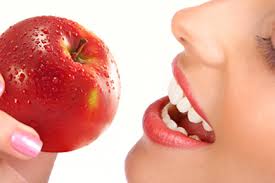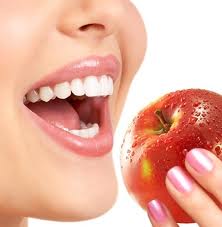How to Protect Your Teeth While You're Sleeping
September 1st, 2016
 When you’re fast asleep, the last thing you’re thinking about is your teeth. (Unless you’re having a dental dream, of course.) So it’s important to make sure that your teeth are well protected before you hit the hay for a long night of sleep. We’ve put together a short checklist that you can use every night before you go to bed to keep your teeth protected all night long.
When you’re fast asleep, the last thing you’re thinking about is your teeth. (Unless you’re having a dental dream, of course.) So it’s important to make sure that your teeth are well protected before you hit the hay for a long night of sleep. We’ve put together a short checklist that you can use every night before you go to bed to keep your teeth protected all night long.
- Brush your teeth before bed
Not brushing before bed is one of the worst decisions you can make for your teeth. If you leave food and plaque inside your mouth, bacteria can eat away at your teeth all night long. This can quickly lead to cavities, tooth decay and gum disease. That’s why it’s important to brush away any plaque that has built up over the course of the day with toothpaste and a toothbrush.
- Don’t forget to floss
Brushing is just your first line of defense against plaque. Unfortunately, most brush bristles can’t effectively clear out food and plaque stuck between your teeth. That’s where floss comes in. Flossing can get rid of hard-to-reach plaque that might otherwise cause tooth decay between your teeth and irritate your gums during the night.
- Finish up your cleaning with a little mouthwash
Your nighttime cleaning routine shouldn’t end with flossing! While many people may only think of mouthwash as a way to freshen their breath, it can do a lot more than that. Swishing mouthwash correctly can destroy any lingering bacteria and wash away leftover loose plaque in your mouth. When you use mouthwash, make sure to swish it back and forth, reaching every area from the top of your gums to your lower front teeth. Gargle a few seconds before you spit, making sure not to swallow.
- Don’t eat after you clean your teeth
The last thing you want to do after cleaning your teeth is get them dirty again with food. Try to finish eating before you clean your teeth at night. If you eat after brushing and flossing, the acid from the bacteria in your food will attack your teeth and gums while you’re asleep. Food isn’t the only culprit here. Any drinks that provide a food source for bacteria (like sugar) can also lead to bacteria growth overnight. You want to make sure to get rid of these bacteria before you call it a night.
- Put on your mouthguard - or consider one if you grind your teeth
Grinding your teeth can wear them down, leading to serious problems such as broken teeth, migraines and TMJ disease. If you have a nightguard from your dentist, it’s important that you wear it every night so that you avoid damaging your teeth by grinding.
If you don’t currently have a nightguard, it’s important to know the symptoms of teeth grinding and clenching in case you need one. Since you’re not conscious while you sleep, it can be difficult to know if you grind your teeth during the night. The following are symptoms of grinding and clenching that can help you identify if you have a problem:
- Chipped or broken teeth
- Teeth that are worn down with flattened surfaces
- Pain in your jaw
- Damaged tissue in your mouth
- Headaches or pain in your face
- Earaches from your jaw
- Sensitive teeth
- Enamel loss
- Irregular tongue edges
If you live with your partner, you can also ask them if they have ever noticed that you grind your teeth during the night. A dentist should also be able to recognize if you grind or clench your teeth.
We hope this little guide helps you to protect your teeth while you’re sleeping. If you have any other questions, feel free to reach out to us on our Facebook page! Here at Water Tower Dental Care, we’re devoting to providing you with the tools and information you need to keep your smile healthy and happy. And for more information about selecting a pillow, visit Sleep Healthier.

 There are a lot of conflicting opinions if apples are good for your teeth or not. Seems odd that it’s even a question. How could the fruit recommended to keep the doctor away hurt you? A few years back, the Toronto Star published some negative
There are a lot of conflicting opinions if apples are good for your teeth or not. Seems odd that it’s even a question. How could the fruit recommended to keep the doctor away hurt you? A few years back, the Toronto Star published some negative  However, though apples can hurt your teeth, their benefits greatly outweigh the risk. Not only can apples help our teeth, they can help regulate our blood sugar, are low in calories and are a great source of dietary fiber. The negative effects of apples are easily preventable and mostly depend on your apple eating habits. If you want the good benefits of apples without the negative impact, follow these steps:
However, though apples can hurt your teeth, their benefits greatly outweigh the risk. Not only can apples help our teeth, they can help regulate our blood sugar, are low in calories and are a great source of dietary fiber. The negative effects of apples are easily preventable and mostly depend on your apple eating habits. If you want the good benefits of apples without the negative impact, follow these steps:




 Website Powered by Sesame 24-7™
Website Powered by Sesame 24-7™